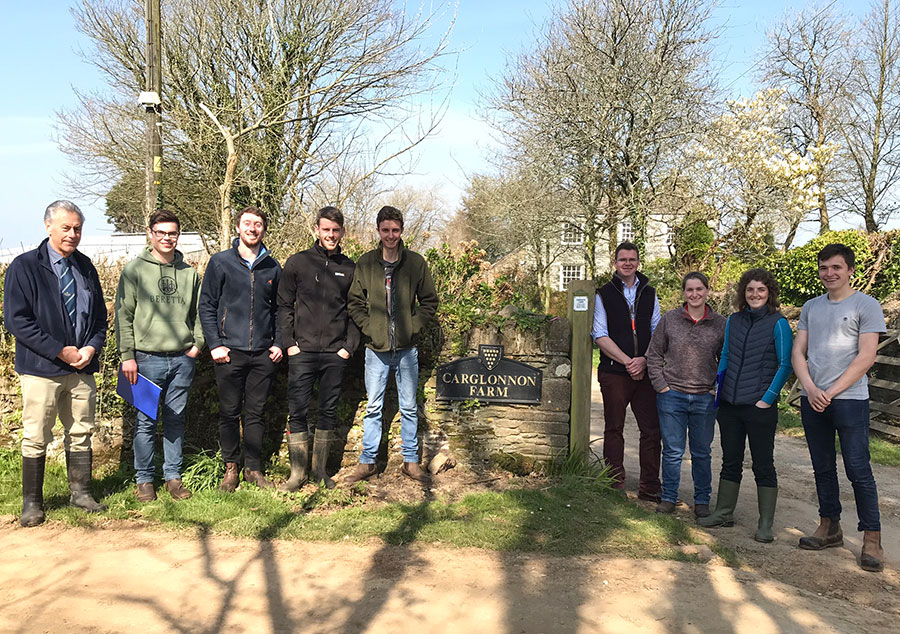Second year students on our FdSc (Hons) Agriculture course have recently completed their interviews with the Duchy of Cornwall’s Land Stewards. The Stewards scrutinised the viability of the farming systems proposed by the students, following the submission of tenancy applications for Carglonnon Farm on the Duchy of Cornwall’s Duloe estate, near Liskeard.
Students had the chance to experience the whole process of tendering for a farm tenancy, providing an excellent opportunity to put their theory into practice. They were given the full particulars of the farm and were able to visit the vacant farm and farmhouse with the Duchy of Cornwall Land Steward team, replicating a farm viewing day.
As part of the students’ Strategic Business Planning module, they had to provide a full application and business plan with detailed financial information, including profit and loss budgets, cashflow forecasts and balance sheet information in a precise, but concise format. Of particular importance this year was the Duchy of Cornwall’s interest in the ‘natural capitals’ across its estate i.e. access, biodiversity, historic environment, landscape, soil and water. The Duchy’s belief is that ‘the longer term farming future will be dependent upon environmental support payments related to the protection and enhancement of natural capitals’. Students needed to clearly demonstrate their understanding of these concepts and how they would apply them within their applications.
Students were also advised by Jamie Blake of the Rural Business School’s Farm Business Survey, Tim Burston, Agricultural Manager with Lloyds Bank and local farmer, Mark Thomas, a member of The Prince’s Council, a non-executive body which provides advice to His Royal Highness regarding the management of the Duchy of Cornwall estate.
Chris Matthews, Deputy Land Steward of Duchy of Cornwall’s Western District, commented, “As ever, there was a good standard of applications and we very much enjoyed reading and discussing the farming systems proposed for Carglonnon Farm. Clearly a tremendous amount of thought and work went into the submissions, which was reflected in their high standard and less variability this year. Students were very positive about the future of agriculture and demonstrated their long term commitment to the industry”.


